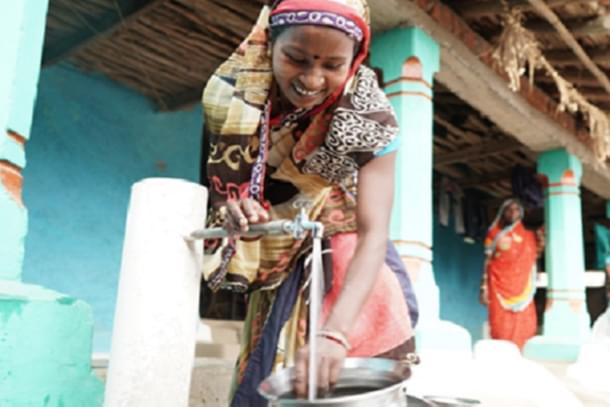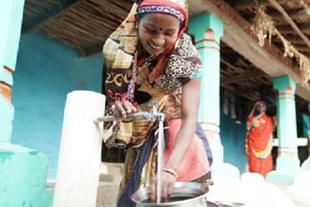News Brief
More Than 60 Per Cent Rural Homes In The Country Now Have Clean Tap Water, Says Union Ministry Survey Report
Swarajya Staff
Oct 03, 2022, 05:39 PM | Updated 05:38 PM IST
Save & read from anywhere!
Bookmark stories for easy access on any device or the Swarajya app.


A survey to assess the performance of Jal Jeevan Mission has revealed that 62 per cent of rural homes in the country now have clean tap water connections.
The survey commissioned by the Union Ministry of Water Resources and conducted by private agency HTA-Kantar Public has revealed that functional household tap connections (FHTC) stood at 52 per cent in June this year.
This indicates an improvement of overall functionality of household tap connection in the country by 14 per cent in 2021-2022.
According to The Hindu report, 95 per cent of the households where water quality was tested, reported pH values that were within acceptable limits.
More than 80 per cent houses in Tamil Nadu, Himachal Pradesh, Goa and Puducherry had FHTC while the number was less than 50 per cent in Rajasthan, Kerala, Manipur, Tripura, Maharashtra, Madhya Pradesh, Mizoram and Sikkim.
The aim of the Jal Jeevan Mission is to provide safe and sufficient drinking water to all households in rural India by 2024.
A fully-functional tap water connection is one where at least 55 litres of per capita per day of potable water is supplied all through the year.
The survey covered 33 states and Union Territories, 712 districts, 13,299 villages and 301,389 households. On an average each house had water being supplied for three hours every day.
While 8 per cent of the homes reported that they had water supply only once a week, close to 75 per cent said it was being supplied all seven days of the week.
As per the report, more than 80 per cent households said that the water supplied through the taps met their daily water needs.
The only concern was the high level of chlorine contamination, especially at the anganwadis and rural schools, 90 per cent of which were now getting potable water.
The report suggests the need for monitoring the correct local dosing of chlorine as “most of the anganwadi centres and schools, had higher than the permissible range of residual chlorine and indicated inappropriate local dosing,” the report said.





